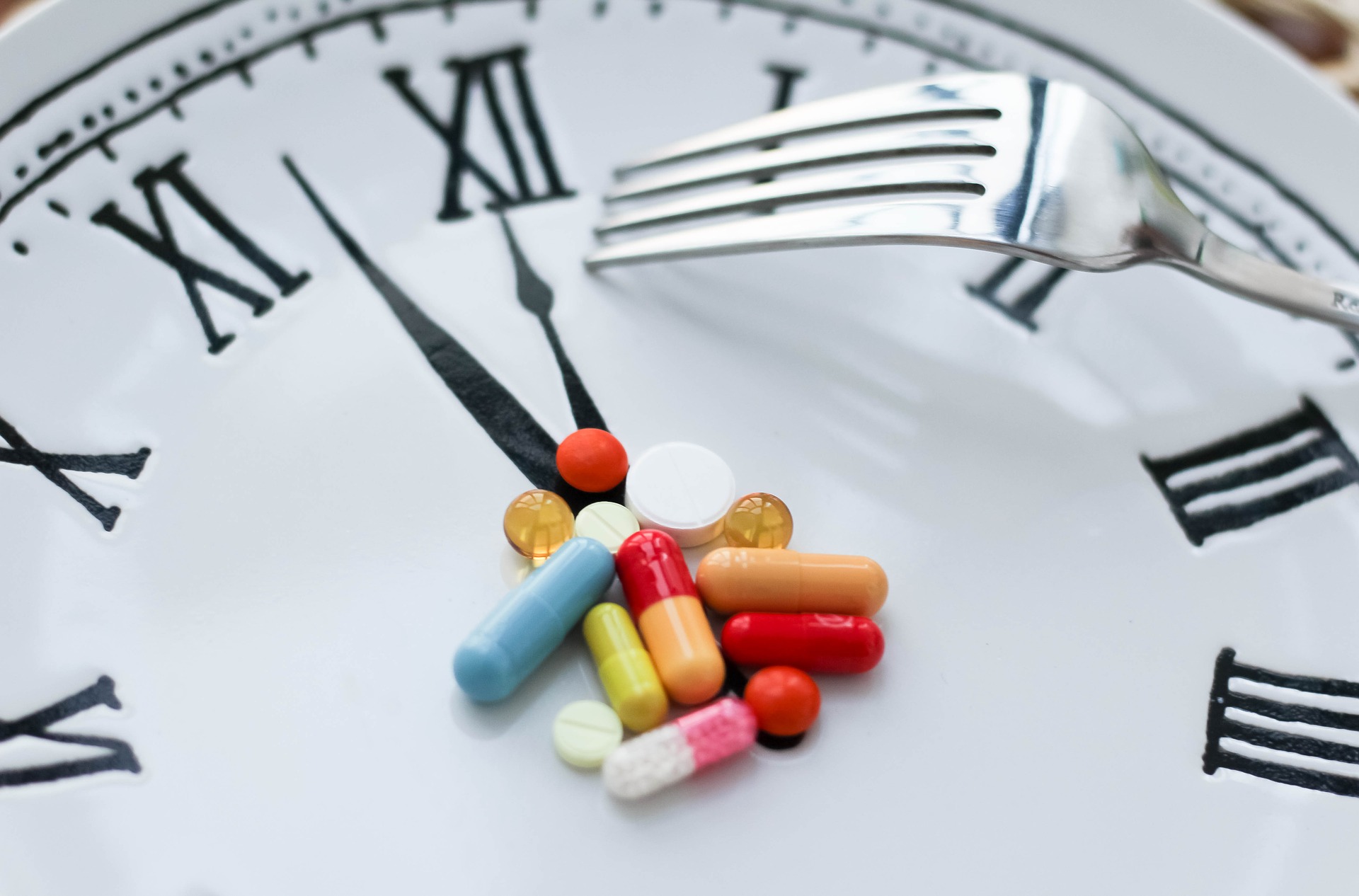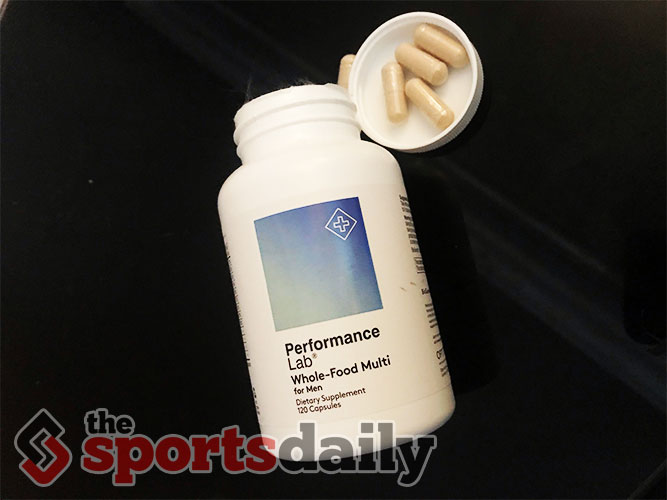If you’re reading this, you’re clearly interested in optimizing your health. Intermittent fasting and multivitamins are both used to improve your health – whether it’s losing weight or boosting your nutrient intake – and if you’re doing one or both of these things you clearly care about being healthy. So, what about doing these things concurrently? Should you take vitamins while fasting? Does it break your fast? Keep reading to find out whether these things should be exclusive or contingent for total health optimization.
What is Intermittent Fasting?
Intermittent fasting was one of the most searched for diets of 2018, according to Google Insights. It has been popularized in the celebrity world by key players like Jennifer Lopez, Beyonce, Terry Crews and Miranda Kerr who all attribute their enviable physique in part to intermittent fasting. Arguably one of the best aspects of fasting is that it’s not an expensive, exclusive new diet trend; it’s free, it’s accessible to all and it reflects how humans were designed to eat.
Humans were originally hunter gatherers who had to locate, hunt, prepare and gather food from natural sources like wild animals and seasonal crops. They couldn’t DoorDash food to their front door or do two-minute microwave meals: getting food was a real struggle. For hunter gatherer humans, food intake was always tied to energy expenditure: chasing animals to kill, scavenging food from trees etc. It was also tied to an inevitable fasting period when food wasn’t available during particular seasons or after an unsuccessful hunt.
This has led some anthropologists to believe that this fasting and feasting cycled way of eating is beneficial to human health. Hunter gatherers are thought to have had no cases of obesity and other preventable lifestyle related diseases like type 2 diabetes: so what’s different with us today?
Firstly, we’re eating constantly, our food intake isn’t tied to physical activity and we don’t have fasting periods. Apart from, of course, fasts that last for on average 6 hours overnight, in which time our food from the night before hasn’t even digested before we’re eating again for breakfast.
Intermittent fasting is based on this concept. Eating in set windows of time, followed by extended fasted periods, has shown to have amazing benefits. If you want to lose fat: fasting has been shown to reduce triglycerides, decrease body fat and decrease the size of your waist by increasing your metabolic rate by 3.6 to 14 percent, according to this study. When your metabolic rate is elevated, you will burn calories faster and enhanced hormone function will put your body in an optimized environment for fat loss.
So, fasting helps you to lose fat at a biochemical, physiological level, but what effect does it have on you mentally? A common concern with fasting is that you will feel deprived, hungry and lethargic during fasted periods, but this couldn’t be further from the reality. The reality is that fasting decreases your appetite by controlling the hunger hormones that tell you to eat. One such hunger hormone is called ghrelin and is shown in research to be lower in individuals who intermittent fast. Leptin is another hunger hormone but is different to ghrelin; it is responsible for telling the brain when you’re full and to stop eating. Leptin functions better in those who intermittent fast, meaning they have reduced appetite and are more likely to stop eating when they are full.
For a lot of people, starting a fasting schedule also helps them to feel motivated and structured when it comes to their food intake. The placebo effect can have negative connotations but it can really accelerate weight loss and creating a healthy lifestyle. The placebo effect is a beneficial effect that occurs when an individual believes they are doing (or taking) something that is good for their health; the outcome is due to the individual’s belief rather than the action itself. Read more about it and it’s role in intermittent fasting here.
If fat loss isn’t your main concern, intermittent fasting may still be suitable for you. You will experience decreased inflammation and oxidative stress during the fasted period as the body has time to focus on healing and controlling inflammation as opposed to being in a continuous fed state. Inflammation and oxidative stress are linked to numerous health issues and diseases including premature aging, cancer, acne and more.
Arguably one of the most underrated benefits of intermittent fasting is what it does at a cellular level. When you fast for an extended period of time, your body initiates key cellular repair processes, like fighting pathogens, repairing DNA damage, removing toxins and more. Cellular repair is directly linked to the aging process; without effective cellular repair your cells will be damaged and thus age quicker. This is known as autophagy, which is increased during fasting windows.
If you’re already doing intermittent fasting or are about to start, you may be wondering what constitutes ‘breaking your fast’. You can consume anything that doesn’t have calories, so coffee – yes, but coffee with creamer and sugar – no. That means no juices, no smoothies, no hidden calories and absolutely no food; otherwise your fast is broken. But some are still left confused when it comes to supplements: can you take vitamins while intermittent fasting? Will it break your fast? Are they necessary to take?
Vitamins and Fasting
Fasting can impact your intake of nutrients. The benefit of fasting decreasing your appetite and the likely decrease in total food intake means that you are consuming less food, and less food means less nutrients. This is particularly important if you do not actively ensure that you are consuming a variety of micronutrients, vitamins and minerals at every meal – which let’s be honest, a lot of us could work on.
When you’re in a prolonged fasted state, your body naturally loses nutrients. This happens for various reasons, including: the loss of nutrients as your body relies on nutrient stores when there is no food available, during fasted exercise and through urination as water is still consumed in a fasted state. The longer you fast, the more benefits are experienced in your body, but unfortunately the more nutrients are lost. So, for those who fast for 16+ hours a day, a multivitamin should be part of your routine.
Vitamins most often won’t break your fast, but you still need to consider when you should take them. Certain vitamins like vitamin D or zinc are known to irritate an empty stomach, inducing feelings of nausea, lightheadedness and vomiting. Some vitamins work best when consumed with food, like curcumin, because it increases its bioavailability i.e. the ability for your body to use and absorb the nutrients from the supplement.
So now you know that vitamins are a great idea for an effective intermittent fasting routine, but what ones are best?
It is better to take a multivitamin supplement that contains all the necessary nutrients, vitamins and minerals to ensure your body is getting enough of what it needs to benefit from a fasted period. The best multivitamin that we have found is the Performance Lab Whole-Food Multi. It’s a high quality, nature identical vitamin that is highly bioavailable, unlike a lot of supplements on the market today. The product contains at least 100 percent of more than 17 essential nutrients that are often lost in intermittent fasting.
One of the main benefits of this product for intermittent fasting is that it can be taken with or without food, and due to the dosage, works best when taken twice a day. This is great news for intermittent fasters, who benefit from the boost of nutrients in a fasted state and then again in a fed state, without breaking the fast. It does not cause nausea or lightheadedness, due to the specific dosage, quality and combination of nutrients.
Without going into detail of every single nutrient in Performance Lab Whole-Food Multi for men or women, here’s a couple reasons why each nutrient helps an intermittent faster…
B vitamins – B vitamins are water-soluble, meaning they are readily excreted through urine during a fasted state, which can cause a deficiency. Consuming B vitamins during a fasted state boosts your body’s stores to prevent this problem. B vitamins are also responsible for helping the body break down fat stores, to accelerate fat loss and energy while fasting. Performance Lab Whole-Food Multi contains generous quantities of the B vitamins, B1, B2, B3, B5, B6, B7, B9 and B12, with all being included at 100% of Recommended Daily Value or more.
Magnesium – Magnesium is a key electrolyte that is lost during a fast. This happens because of the increase in ketone bodies that help to accelerate fat loss, but also unfortunately accelerate the excretion of nutrients. Magnesium helps to balance fluids in the body and to regulate blood pressure, to make sure you are remaining in a homeostasis during a fast.
Chromium – This nutrient is rarely found in common multivitamin brand, another reason why this specific product trumps the others on the market. This nutrient has been shown in research to diminish hunger and control cravings that can be detrimental when you’re in a fasted state. Performance Lab Whole-Food Multi contains 100% of your daily chromium requirement.
Taking vitamins while intermittent fasting is a great idea. It will ensure that you are covering all your basis for nutrients, despite a depletion of nutrients during a fasted state and an often-reduced food intake. The Performance Lab Whole-Food Multivitamin is the best on the market and contains a unique concoction of the vitamins and minerals necessary for a successful fast.
Add The Sports Daily to your Google News Feed!









